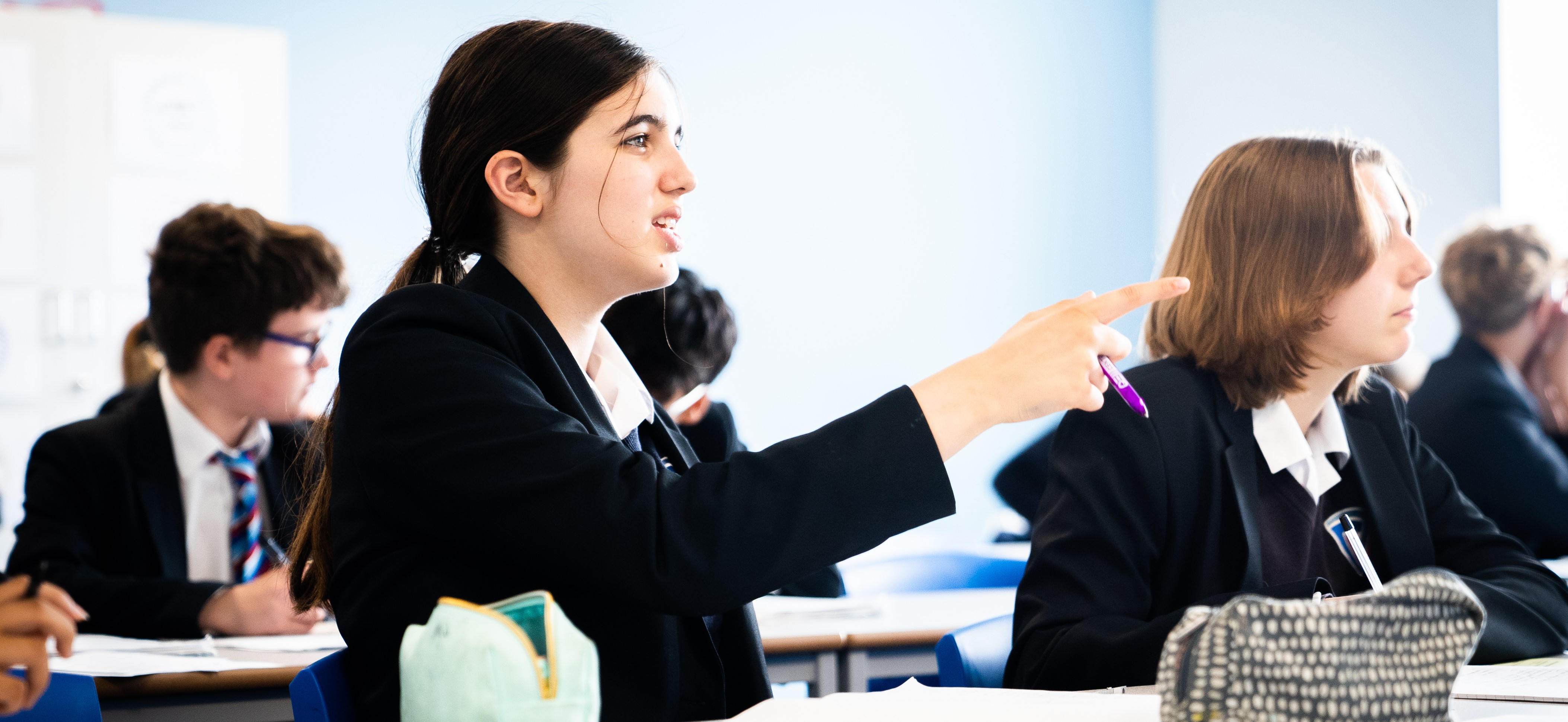Literacy Across the Curriculum
At Turing House School, we aim to help students to be successful in their future, whatever path they take. Students learn to express themselves in writing and through speech, to listen to others’ viewpoints and communicate effectively. All teachers are involved in raising students’ literacy, and our students have plenty of opportunities to develop their reading, writing and speaking skills across the curriculum.
You can follow our English Department on Instagram and read the School's weekly newsletter for our Book of the Month.
Reading Lists
- 10 Books to Read before Secondary School
- Turing House Reading List
- Carnegie and Greenaway Medal Shortlists
- BBC 'Big Read' Top 100 Books
- 19th Century Reading List
- Cross Curricular Reading List
Tips to Improve Literacy
- Realise that you’re practising literacy all the time: reading bus timetables, road signs, text messages, cereal boxes; none of these would be possible without literacy.
- Read widely. Reading a range of texts regularly can help with vocabulary acquisition, spelling, and learning inherent rules of grammar. Don't be afraid to stretch and challenge yourself.
- Find and read books that you’re interested in and enjoy. If you are reading a book you don’t like, instead of putting it off, stop reading it, and swap it for one you do enjoy!
- Before writing, talk about what you’re going to write. The act of planning it, especially out loud, helps you articulate your ideas ready for writing.
- Keep a journal. Journaling helps you organise your ideas and thoughts, and reflect upon your experiences. The more you write, the more experimental you will become with your writing.
- Read through your work carefully, using a checklist of things you know you need to improve on. It might be the basics such as capital letters and full stops, or it might be more complex elements like structuring your sentences for effect.
- Practise your spellings. Sometimes, the spelling rules in English just don’t make sense or are really tricky to learn. Use your knowledge of phonics to sound out the word, or use the 'look, cover, write' technique to check or learn the spellings.
- Keep a log of new words that you learn, and try to use them in your talking or writing. You may find that once you learn a new word, you’ll start seeing it everywhere!
- Ask a friend to read your writing, and make suggestions for you. Another set of eyes can help you see things you haven’t noticed, and you can share your ideas with them too!
- Parents, read with your children. This lovely routine doesn't need to stop at secondary school. It’s so beneficial to your child’s development, and a great opportunity to spend time with your child.
Useful Links:
Books We Love
His Dark Materials, Phillip Pullman
‘I vividly remember reading these as a teenager and got completely lost in the world Pullman created. I think these books have paved the way for many others that have followed, and they still remain some of the best in their genre. The more recent ‘Book of Dust’ series, about the same world and characters, is also well worth reading.’ – Ms Dawson
The Book Thief by Markus Zusak
‘I love this book because it has the most unusual narrator: death. Death becomes captivated by a girl, Liesel, who is growing up in the time of the Nazi regime in Germany. The book teaches important lessons about friendship, humanity, and the importance of the written word and its power to change things.’ – Ms Andrews
The Bone Clocks by David Mitchell
‘I love this book because it introduces you to a new fantasy world where immortality is possible. Structurally, there are five narrators throughout the text (a similar structure to his other famous novel, Cloud Atlas) primarily focusing on the protagonist with psychic abilities, Holly Sykes. The plot focuses on a war between the Anchorites, immortal characters who remain immortal by murdering, and the Horologists who naturally reincarnate and try to defeat the Anchorites. It is a bizarre world that it utterly consuming! I cannot recommend it (and other books by David Mitchell) enough to anyone who enjoys the fantasy genre!’ – Ms Kirwan
Have a look at our work with Penguin Publishing House on diversity in literature.
